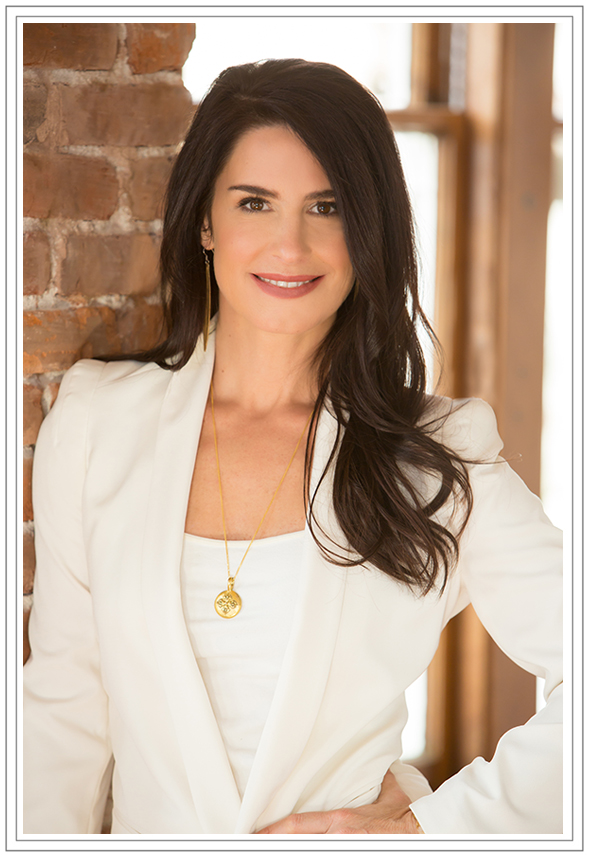How many times have you heard this, “wow, what a crazy year 2020 has been,” or, “I can’t wait for things to return to normal.” I think we can all agree that 2020 has been atypical (for at least a hundred reasons) and, is this baseline end-of-year sentiment really all that different from years past?
Tradition has us conditioned to “turn over a new leaf” at the beginning of the new year, to let go of the past, to start fresh… This year should be no different as we contemplate, self-reflect, and decide what needs to be left behind. Preserving all the learnings from 2020’s countless lessons while letting go of negative feelings are key to your emotional health and being present. It’s so interesting to me that so many of us tend to only do this major purge just before the dawn of a new year.
I don’t need to tell you that the pandemic has made 2020 stand out among the rest. It has been the year of unprecedented change and self-sacrifice. We’ve all faced unforeseen obstacles and challenges as a result of the state of affairs; some of us have lost jobs, some of us have lost the ability to see our friends and loved ones as often as we would like, and some of us have lost our loved ones to the virus. It has affected the entire world all the way down to our everyday living; how we go to restaurants, how we vacation, how we go to school, connect with one another, and do our work. And, we are looking forward to establishing our new sense of normalcy, we’re also clear that things are going to be different for a while to come.
Everyday life can be stressful, regardless of what’s happening in the world, and with COVID bringing a global lockdown, social injustice to the headlines, and political unrest across our nation being at the forefront of it all, certainly made this year one for the books.
So the biggest question we’ve been haggling with all year is “How do you ensure that our stress levels are being managed as best we can, and what practices can we apply to mitigate the damage?”
“Within you, there is a stillness and a sanctuary to which you can retreat at any time and be yourself.”
Hermann Hesse – Swiss poet, novelist, and painter
Self-reflection is taking the time to notice and digest both successes and failures (big and small) in our lives. The opportunities and challenges that we face on a daily basis and the personal development that takes place is what makes each of us unique.
This is a prime opportunity to improve on our strengths and better align with our values and goals. This is the great reset. Now is the time to truly rediscover who we are at our core.
It is also important to reflect on all your accomplishments, no matter how big or small. For many of us, we are consumed by the negative: I didn’t get this task done today, or I missed the deadline at work, etc. To use the familiar expression, “turn that frown upside down” and turn to the accomplishments you achieved rather than the setbacks or perceived failures.
Maybe something unexpected came up which resulted in you not completing a task during the day, or falling off your path at some point this year. At first glance, you may focus on the negative and dwell over the uncompleted task or setback. Instead of focusing on the negative, look at the situation from a different angle. Maybe the kitchen faucet unexpectedly broke on Christmas Eve and there wasn’t a plumber around to fix it, so you had to fix it yourself. This took up 2 hours of your afternoon, so you didn’t get some other tasks completed, making you frustrated and stressed. There is, however, a silver lining – take this as an opportunity to look at this ‘inconvenience’ through a different lens – you adopted a new skill and solved the problem yourself. Voila, an accomplishment! Add little nuggets of appreciation like this throughout your day – they will serve as reminders to look on the bright side and help you focus less on the negative.
Guidance on Self-Reflection:
* Begin with a few deep, relaxing breaths and close your eyes
* Identify the emotion you need to work with
* Visualize the emotion as a tangible person or living thing. Who – or what – does it look like? Describe in detail.
* Begin a dialogue: “What is the message I need to see, or hear, or get? What is it you’re here to teach me? What is it I need to understand? Why are you here? What is this about?
* Listen for the response.
* After having a dialogue about what the emotion is trying to teach, ask how to resolve the issue and what is necessary to reintegrate this emotion in a healthy way. “What do I need to know or do differently in order to shift the experience I’m having?” When asking this question, focus on the positive outcome.
* Listen for the response/message.
* Identify what the unmet need for this personification has been. What is the message or lesson for you here?
* Identify and commit to taking an action that will heal this aspect of yourself.
* Integrate the newly healed personification by accepting and honoring it as a part of yourself.
* Spend some time journaling about what came up for you.
* Take a new and appropriate action to respond to the unmet needs you uncovered and implement the lessons you learned from this experience
* Q: Am I living true to myself?
* Q: Am I letting matters outside of my control stress me out?
In addition to self-reflection, letting go of what no longer serves you will help you to detoxify your mind and body and create space for more of the things that bring you joy. Remember, “letting go” does not have to be associated with material and tangible objects, one can also “let go” of unnecessary and unwanted emotional baggage. If you are like me, something as simple as decluttering your bedroom closet can go a long way in making you feel lighter and more cheerful. It can serve as a temporary distraction to the noise around you and give you a sense of accomplishment after the job is complete. More importantly, some of the items that may no longer serve you can be useful to others. Donating items that you no longer need is rewarding not only to the people who receive them, but also to you.
While letting go of material objects is generally “easier” for most people, it is crucial to work through and let go of your emotional baggage. Letting Go of Emotional Suffering is key to giving yourself permission to acknowledge your emotional state, not to ignore or block the emotion. Letting go of negative emotions allows you to create a new being – your New Years resolution. It also gives you the tools to awareness and compassion, both for yourself and for others. Decluttering your mind, similar to decluttering your closet, will allow you to jump into 2021 with crystal clear clarity and intention.
Self-reflection and letting go of negative emotions will help you feel renewed and start 2021 feeling rejuvenated and empowered. Here are few questions to reflect upon and ask yourself at the end of the year:
A: We live in a world where we have grown accustomed to being bombarded with messages that tell us what we should be, how we should look, how we should act, and how we should feel. Knowing how to be true to yourself and living an authentic life are fundamental for your mental well-being. It’s important to remember that we have complete control over our journey. Being the best version of yourself has nothing to do with your documented success, your status, or how others may perceive you to be. It has everything to do with your character and leading an honest life with passion and trusting in yourself. When you are living an authentic life, you are better equipped to let go of what does not serve you and better align with your life’s purpose for a more rewarding and fulfilling life. Take time to journal, reflect and consciously evaluate where you are in your journey. Continue doing what works and let go of what doesn’t. Be gentle with yourself during this process and reflect in a non-judgmental way.
Q: Am I comfortable being uncomfortable?
A: Change is inevitable. To live fully, you cannot simply live your life on the sidelines or cradled inside of a safety net. When you hide away and play safe you are essentially playing small and denying yourself full range of the human experience. The knowledge and empathy that go hand in hand with overcoming obstacles and facing challenges are what allow you to grow and prosper. For most of us, change is uncomfortable. When you experience feelings of discomfort it’s important to acknowledge it as a natural human emotion and not run from it. Harnessing your personal power and trusting in yourself to step into the unknown and accepting that change is inevitable can be a very freeing thought and provide a sense of calm.
A: Worrying about things that are outside of your realm of control will quickly drain you of the mental strength needed to be the best version of yourself. When you find yourself overthinking and stressing ask yourself, “Is this a problem within my control?” or “Do I need to change how I feel about the problem?” We are all guilty of unnecessary worry from time to time, but it is important to keep things in perspective. Can you control the snowy day that made you late for your first “big” meeting of the day? No. So, don’t let it fill you with stress and anxiety. When you put an end to worrying about things you can’t control, you’ll have more time to devote to the things you do have control over.
Q: Am I focusing on the positive?
“Attitude is a little thing that makes a big difference.” – Winston Churchill
A: Do you find yourself laser focused on the one negative comment someone made to you two weeks ago or were you able to let it roll off your back? Often times, we are guilty of placing an emphasis on the negative, rather than the positive facets of our day to day lives. When you harness the power of positivity, it can have an incredible impact on your life. Keeping a positive mindset can greatly improve your happiness and overall well-being. Expressing gratitude is one fool proof way to invite joy into your life and help you uncover more meaning and fulfillment on a day-to-day basis. You can’t control what happens to you, but you can control how you respond. Looking to the bright side will attract more positivity and improve your overall outlook on life. It’s also important to remember to stay present, this limits your mind’s ability to wander and really take in what’s happening around you in the present moment.
It can be difficult to feel optimistic, especially during uncertain times like now. When you feel discomfort, it’s important to recognize the obstacles you’ve overcome – celebrate every victory, respectfully acknowledge and mourn your losses, and find joy in the little moments. Find a new appreciation for simplifying. Continue to find creative ways to connect with family and friends. Welcome light as we near 2020 and carry it forward as we enter a new year!

An International Bestselling Author, Lifestyle and Leadership Coach and speaker, Tris Thorp is one of today’s leading experts in the field of personal growth and leadership development, specializing in emotional healing, women’s empowerment and shadow work.
Having spent a decade traveling the world, being trained by and sharing the stage with Dr. Deepak Chopra in the field of social emotional learning, consciousness and mindfulness-based practices, Tris has a real gift for integrating the ancient spiritual teachings with modern-day science and mindfulness to help people all over the world let go of their past and create an empowered new future.
During her tenure at the Chopra Center, Tris apprenticed under the Chopra Center’s co-founder Dr. David Simon, co-facilitating the Healing the Heart and Emotional Freedom workshops alongside him. Prior to his passing in 2012, Dr. Simon appointed Tris as the person to carry on his teachings in the field of emotional healing. In addition, Tris was fortunate to be mentored by the late Debbie Ford prior to her passing in 2013, which is where she continued her extensive studies of the unconscious mind and concepts of the persona and shadow. After the loss of her two mentors, Tris went on to become certified through the Ford Institute as a coach specializing in Shadow Work and reconciling mental and emotional issues stemming from past experiences. She continues to share the gifts of emotional healing and facilitating this work in the footsteps of her former mentors.
Tris is the International bestselling author of Healing Your Heart: Rewrite Your Story with Awareness and Intention. A guide book to understanding your emotions, how we create our story and workable tools and techniques to heal from the past, Healing Your Heart stewards you through the process of releasing mental and emotional baggage, forgiving yourself and others, setting and enforcing boundaries and consciously communicating your needs in a loving and effective way so you can be who you’re meant to be, do the things you want to do and have all that you deserve to have in this life.
Tris is also the co-author of bestseller Mental and Emotional Release® with Dr. Matt James. Written in a language both professionals and non-professionals can understand, Mental and Emotional Release® offers real life case studies, an overview of MER and its foundation, step by step scripts to follow, and clinical efficacy studies comparing MER to other therapies.
Clearly in her dharma, Tris’s passion and dedication to gently guide people on their inward journey through personal growth is evident in her work as a Lifestyle and Leadership coach, Trainer of Mental and Emotional Release and workshop facilitator. She teaches various courses on leadership development, personal empowerment, social emotional learning and higher states of consciousness – both in online courses and her certification programs, live workshops, VIP retreats and 1-1 clients.
Tris Thorp is Board Certified by the Association of Integrative Psychology as a Trainer of Mental and Emotional Release ®, Master Practitioner of Neuro Linguistic Programming, Hypnosis, and Mental and Emotional Release ®, a Certified Reiki Master, and an Experienced Registered Yoga Teacher with Yoga Alliance.
Tris is devoted to inspiring and empowering others to cultivate and maintain mindfulness-based lifestyle practices that lead to greater clarity, purpose and fulfillment. Through one-on-one coaching, online programs and live events, Tris specializes in helping people to fully release negative emotions, limiting beliefs and unconscious patterns, enabling them to make quantum leaps into the life they are truly meant to be living.

